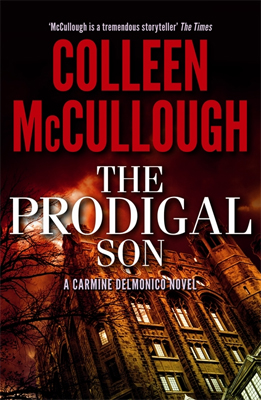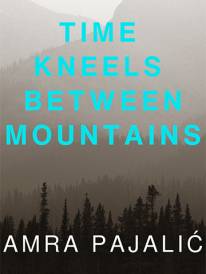The Prodigal Son

The Prodigal Son
Holloman, Connecticut, 1969. A very rare and lethal toxin, extracted from the blowfish, is stolen from a laboratory at Chubb University. It kills within minutes and leaves no trace behind - unless a doctor knows what to look for - and worried biochemist Dr. Millie Hunter reports the theft at once to her father, Medical Examiner Dr. Patrick O'Donnell.
Patrick's cousin Captain Carmine Delmonico is therefore quick off the mark when the bodies start to mount up. A sudden death at a dinner party followed by another at a gala black-tie event seem at first to be linked only by the poison and Dr. Jim Hunter, a scientist on the brink of greatness and husband to Millie. A black man married to a white woman, Dr. Jim has faced scandal and prejudice for most of his life, so what would cause him to risk it all now? Is he being framed for murder -- and if so, by whom?
Carmine and his team of detectives must navigate the competitive world of academic publishing, fraught with politics and prestige. The stakes are high: an amazing art collection, a large inheritance, old and upstanding local families, a gold-digging wife, jealous relatives and a young couple's future.
Colleen McCullough was born in western New South Wales in 1937. A neuroscientist by training, she worked in various Sydney and English hospitals before settling into ten years of research and teaching in the Department of Neurology at the Yale Medical School in the USA. In 1974 her first novel, Tim, was published in New York, followed by the bestselling The Thorn Birds in 1977 and a string of successful novels, including the acclaimed Masters of Rome series. In 1980 she settled in Norfolk Island, where she lives with her husband, Ric Robinson, and a cat named Shady.
The Prodigal Son
Harper Collins Australia
Author: Colleen McCullough
ISBN: 9780732293239
Price: $32.99
Interview with Colleen McCullough
Question: What inspired you to write The Prodigal Son?
Colleen McCullough: I try to vary my plots within the Carmine Delmonico matrix as much as possible, so that a faithful reader doesn't get a sense of déjà vu or a new reader a sense of bewilderment. Each book has to stand on its own, yet belong to an ongoing saga. The time period is the late 1960s, a very different America from the one of 2012, which I feel adds an additional fillip to the interest contained in the novels by reminding readers what life was like back then. The Prodigal Son is about racial issues, its protagonists a black/white married couple heavily involved in high-powered scientific research.
Question: What is the best thing about creating a character like Carmine Delmonico?
Colleen McCullough: When I was debating what kind of detective I wanted for my new project, a series of whodunit murder mysteries, I decided that this person would be male, a professional policeman, and an American in an American setting. I didn't want him to resemble any of the famous fictitious detectives, from Hercule Poirot to Adam Dalgleish; he should be more mundane yet still memorable. A man in his forties, attractive, intelligent and well educated - typical of the Italian-American segment in an old New England town where the emigration was generations back and the families now professionalised. Carmine, I felt, would have a soul as well as a heart, a polished alpha-male.
Question: What research goes into writing a book set in 1969?
Colleen McCullough: Much of the Delmonico series' setting is from memory, as I lived and worked from 1966 until 1977 in New Haven, Connecticut- and Ivy League university town. For research, I go to the internet and friends in the main.
Question: Can you share your writing process, with us?
Colleen McCullough: I'm a writer's writer. The words are there, and they come out effortlessly, I always think from sheer practice. I must have typed literal billions of them over the years. I understand my medium and have the ability to keep myself detached from my own work, though sometimes I need an outside eye to tell me where abouts I've gone wrong. I work on an IBM Lexmark Wheelwriter electric typerwriter, as I'm perfectly comfortable on it and see no advantage in switching to a computer. I have hard copy word, by word, and can read my efforts without scrolling or bothering my eyes on a phosphorescent screen. I spell superbly and detest Gates Grammar, and have my own ideas on setting out. So I type.
Question: What advice do you have for aspiring writers or artists?
Colleen McCullough: Advising would-be writers is difficult, especially for someone as advanced in age as I; I have been successful now for forty years, and have published 23 books. First of all, I would tell aspiring writers not to ensconce themselves in a cosy world of friends and acquaintances who all do the same kind of thing. Get out and experience the world in every possible way you can! Grist for the writer's mill. To write, you must have something to write about, and the self isn't of vital interest to a world full of selves. Secondly, never show your work to those who are emotionally attached to you; such readers have their own axes to grind; they won't always give you honest opinions. The best judges of your work are those without any attachment to you; they will tend to be honest. Don't give up if a manuscript is rejected by a publishing house. Almost all new writers have a history of rejection, it's standard. A literary agent is a help.
MORE



